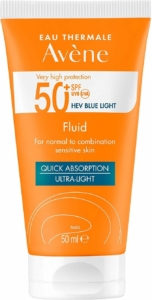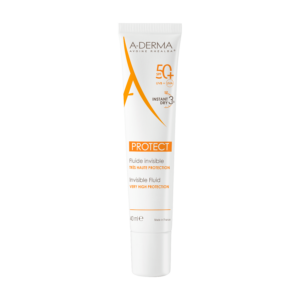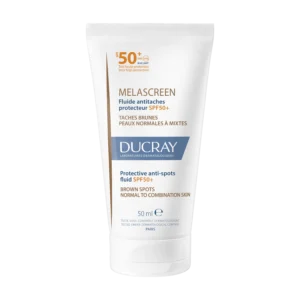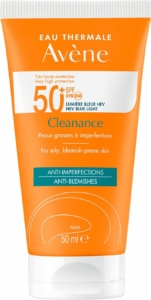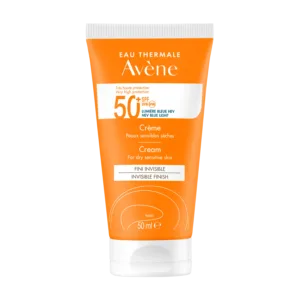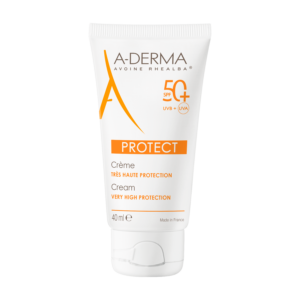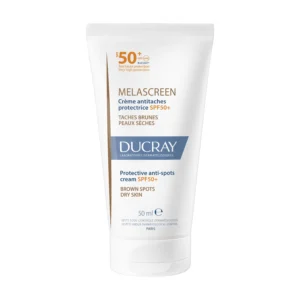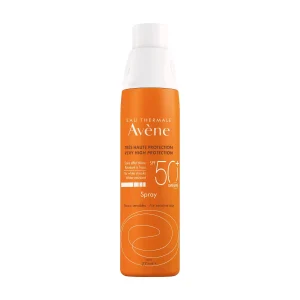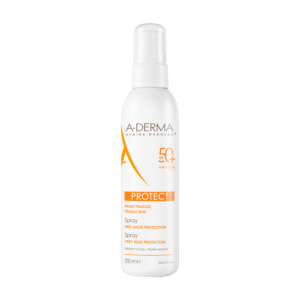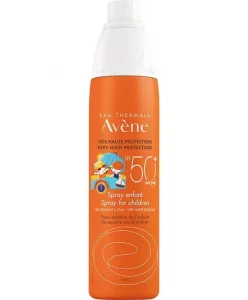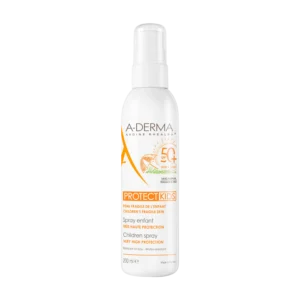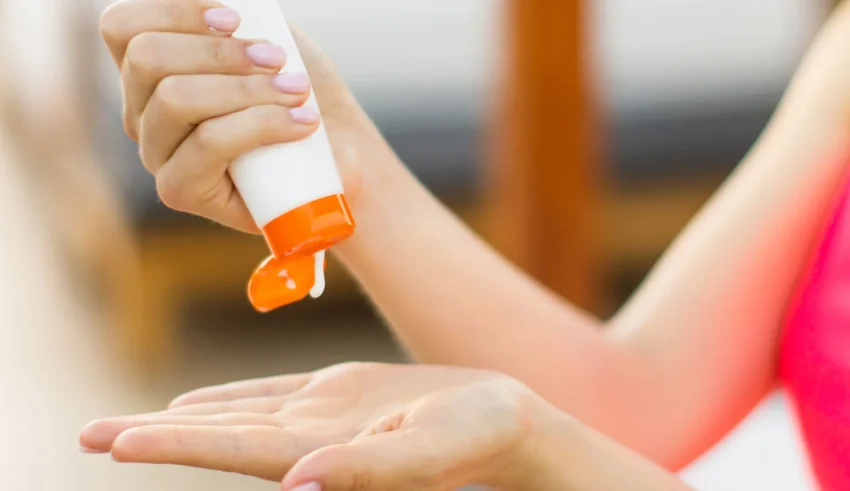
We understand that mornings can be tough. Most of the time, you’re rushing to get to school or work on time. You may put on a little mascara and lip gloss and leave it at that, but dermatologists and beauty experts agree that there’s one step you should never omit from your morning routine: SUNSCREEN. No, sunscreen isn’t a product you should reserve for beach trips only. In this article from The Dermo Lab and in collaboration with the dermatologist Dr. Georges Fidawi, we explain the main reasons why you should put on sunscreen every morning, as well as how to choose the sunscreen that’s right for you.
Why is it important to use sunscreen every day?
1- Protection against the sun’s harmful rays
Sunscreen is like a superhero shield that protects your skin from the sun’s harmful ultraviolet (UV) rays. These insidious rays can cause serious damage, such as sunburn. Using sunscreen is the best way to protect your skin from the sun’s harmful effects.
2- Fighting premature aging
The best anti-aging product you can offer is your daily SPF. Sunscreen protects you from UVA rays, which accelerate the signs of aging. UVA rays are the longest UV rays, which means they can penetrate deeper into the skin. UVA affects the structure of collagen, transforming the normal triple-helix structure that resembles straight, uniform stalks of dry strands into broken, fragmented tangles of different sizes. This results in visible changes to the skin, including changes in texture, wrinkles, and a yellow discoloration of the skin.
Using sunscreen can help prevent these annoying signs of aging and keep your skin looking young, healthy, and radiant.
3- Reducing your risk of skin cancer
Did you know that skin cancer is the most common type of cancer worldwide? That’s right, and sun damage is often the cause. UV rays damage the DNA of skin cells, producing genetic mutations that can lead to cancer. Prevention is always easier than cure. By applying sunscreen every day, you can significantly reduce your risk of developing skin cancer.
4- Having an even, smooth complexion
Wrinkles aren’t the only signs of aging caused by the sun. Sunscreen can also protect your skin against the appearance of brown pigments or “sun spots”, which age the skin aesthetically. Brown spots and hyperpigmentation are caused by UVA rays. UVA rays cause DNA changes in melanocytes, our body’s pigment-producing cells.
Hyperpigmentation can be frustrating and annoying but don’t worry, there’s a simple way to prevent it: sunscreen! By wearing sunscreen every day, you protect your skin from harmful UV rays that can cause uneven skin tone.
What tips do you have for maximizing the protection of your sunscreen?
- Get UVA and UVB protection
Always opt for a sunscreen that offers both UVA and UVB protection. This will protect your skin from ultraviolet B (UVB) rays, which cause sunburn and skin damage, as well as ultraviolet A (UVA) rays, which increase the risk of skin cancer.
Make sure the sunscreen you choose contains zinc oxide or titanium dioxide. These ingredients help block UVA and UVB rays.
According to Dr. Georges Fidawi, some ingredients in sunscreens are more effective than others, regardless of skin type. However, sensitive skin may not be able to tolerate most chemical ingredients, and you’ll need to choose the right sunscreen ingredient and texture for your skin type.
- Choose SPF 50 or higher
Always use sunscreen with an SPF (sun protection factor) of 50 or higher. The SPF of your sunscreen absorbs and reflects the sun’s rays so they don’t burn or damage your skin.
Bear in mind, however, that a higher value is not necessarily better when it comes to SPF. Many people think they can safely stay in the sun longer if they choose a higher SPF. But this is not the case. Dr. Georges Fidawi explains that higher protection is always better up to SPF 50. After that, sun protection is virtually the same, with a negligible difference between SPF 50 and SPF 100. He notes that it’s important to ensure that the sunscreen also contains UVA protection, as SPF refers to UVB protection.
- Apply sunscreen early – and generously
It can take up to half an hour for your skin to absorb sunscreen. So plan to apply sunscreen 30 minutes before going out.
And don’t skimp on sunscreen. Most people don’t apply enough. For sunscreen to be effective, you need to apply 1 ounce (the size of a golf ball) to every part of your body exposed to the sun. This includes your ears, feet, and neck.
- Reapply sunscreen every two hours
Forget about all-day protection. Sunscreen wears off after just a few hours. So make sure to reapply a golf-ball-sized amount every two hours.
In some cases, you may need to reapply sunscreen every 60 to 90 minutes. This is the case if you:
- use a spray-on sunscreen. It needs to be reapplied more often, as it washes off more easily.
- are swimming or sweating. Water, snow, and sand can intensify the sun’s rays and cause more severe burns.
- Don’t rely on sunscreen alone
Unfortunately, sunscreen can’t completely prevent sunburn and skin cancer. But you can offer your skin extra protection by wearing :
- lip balm with SPF 30 or higher
- a wide-brimmed, close-weave hat
- wraparound sunglasses with UV protection
- a dark, long-sleeved, tightly woven shirt or special sun protection garment.
You can also protect your skin by staying in the shade from 10 a.m. to 4 p.m. This is when the sun’s harmful UV rays are strongest.
Remember, no sunscreen provides 100% protection against the sun. But by taking these extra precautions and taking the time to apply – and reapply – sunscreen correctly, you can significantly reduce the risk of sunburn and skin cancer.
Our choice of sunscreens:
For the face:
For normal to combination skin:
Eau Thermale Avène Very High Protection Fluid SPF 50+
A-Derma Protect Invisible Fluid SPF50+
Ducray Melascreen Protective Anti-Spots Fluid SPF50+
For oily and acne-prone skin:
Eau Thermale Avène Sun Cleanance Sunscreen SPF50+
For dry skin:
Eau Thermale Avène Very High Protection Cream SPF50+
A-Derma Protect Cream SPF 50+
Ducray Melascreen Anti-Spots Cream SPF50+
For the body:
Eau Thermale Avène High Sun Protection Spray SPF 50+
A-Derma Protective Spray SPF 50+
For children’s sensitive skin: (face + body)
Eau Thermale Avène Sunscreen Spray for Children SPF 50+
A-Derma Protect Children Spray SPF 50+
FAQ
Does sunscreen have an expiration date, and how often should I replace my sunscreen for maximum protection?
Dr. Georges Fidawi believes that, like any other skincare product, sunscreen can expire. Once you’ve opened your sunscreen, check the side of the tube for a picture of a jar with an open lid and a number inside. This number indicates how long the sunscreen can be used after opening. (If the number is 12, the sunscreen is valid for 12 months after opening).
Are spray sunscreens as effective as lotions, and are there any safety issues I should be aware of?
Dr. Georges Fidawi answers that yes, they are just as effective when used correctly. If you use a good brand with the approved percentage and ingredients, sunscreens are safe, unless you’re allergic to one of the ingredients.
Can I stay in the water longer if I use a sunscreen labeled water-resistant?
No. Water resistance means that your sunscreen won’t rub off easily when you swim or sweat. However, the more you’re exposed to sun and water, the less effective your water-resistant sunscreen will be.
What are the most common misconceptions about sunscreen, and how can I make sure I’m using it correctly?
Dr. Georges Fidawi notes that the most common misconception is that there’s no need to apply sunscreen on cloudy days or in winter. This is false, as UV rays always reach the earth, even on cloudy days. Another misconception is that most people only apply sunscreen once in the morning, when in fact you need to reapply it every 2 to 3 hours if you’re out in the sun.
